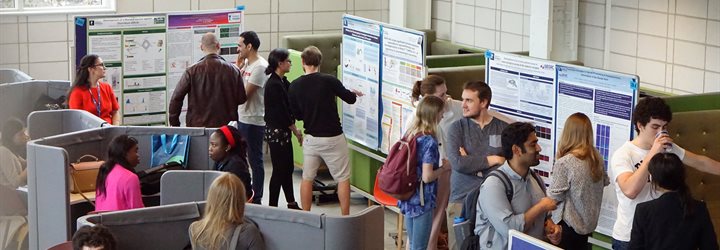
Training
Our aim is to deliver unique training opportunities to individual students to help them develop the scientific, technical and team-based skills that will ensure they are competitive for what career they choose to pursue at the end of their studies. With support from our industrial and other partnerships, students will be able to gain additional and relevant training during a transition phase, once this thesis has been submitted.
We will also organise a number of cohort-based training events which will help our students develop cross-discipline understanding, communication and networking skills both with and between Wellcome Trust (and related) programmes. With support from the thesis committee, our students should feel fully supported to reach their individual potential in a supportive and collaborative environment.
All supervisor members, irrespective of previous experience, will be expected to participate in annual continuing professional development (CPD)/training opportunities. This is to ensure that a high standard of supervision is provided for all students though out the program.
All of our supervisors undertake training in equality, diversity and inclusion, as well as unconscious bias, as part of their commitment to University Of Nottingham policies. Programmes for staff mentorship are also active across University Of Nottingham and all supervisors and early career researchers (ECRs) will be encouraged to sign up to them.
All ECRs will undergo mentorship and supervisor training prior to becoming a member of a supervisory committee.
Post-PhD
Career development plans will be implemented throughout the Drug Discovery and Team Science program. This will ensure that PhD students are provided with many tools and opportunities to enable them to pursue a desired career path.
Following the submission of their PhD thesis, students will be offered professional development activities, which will maximise employability. Placements in partner laboratories, learned societies, publishing teams and business teams would be great opportunities for PhD students. This transition time could also be used for completing and publishing papers in a supportive environment. Whilst, outreach placement opportunities will also be encouraged through agreed placements with organisations such as The Brilliant Club.